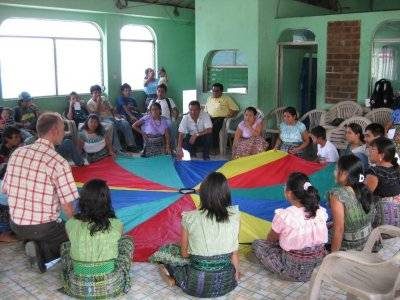All You Need is Love (Ros' Blog)

I love the way that Jesus approached people, as recorded in the Gospels. He didn’t overthrow convention just for the sake of it, but nor did He allow Himself to be bound by convention when love demanded a different way.
For example, when the synagogue leader came to plead with Him to heal his daughter, Jesus treated him with the respect due to someone in his position, stopped what He was doing and went with him. But when a woman touched His cloak in search of healing and tried to slink away unnoticed, He knew how important it was to affirm her, to show her that she mattered to Him, and to commend her faith. And so the synagogue leader was kept waiting; the deference due to his position was placed below the dignity of a mere woman, and a woman who was an outcast at that.
When Jesus was welcomed into the home of Lazarus and his two sisters at Bethany, He not only indicated that He didn’t consider a woman’s place to be in the kitchen, but He even encouraged the women to sit at His feet to listen and learn as equals with the men, something no other rabbi would ever have countenanced doing.
When the paralysed man was lowered through the roof down to where Jesus stood, the whole crowd waited expectantly for Jesus to pronounce words of healing, but at first he didn’t do so; He began by addressing him with a word which the New Testament writers translated into the Greek as “ἁνθρωπη” (“anthrope”) – a word denoting “human being”. In front of the whole crowd, Jesus affirmed the paralysed man’s full humanity. Next He spoke of forgiveness of sins, a prerogative that belonged to God alone, and only once that supremely important business was dealt with did He turn His attention to the physical cure the man was seeking.
When His disciples were criticised for picking and eating grain on the Sabbath, He pointed out that the Sabbath was supposed to be something people benefited from, not the other way round. When His disciples came and told Him the Pharisees had been offended by something He said, He dismissed them as blind guides trying to lead others, and falling into a ditch. When, in the middle of His sermon, someone shouted out, asking Him to settle a dispute, He didn’t tell them to either sit down and shut up or leave. Instead, He used the interruption as an opportunity to address the problem of materialism.
It wasn’t that He had no time for tradition, position or custom, but simply that these things always had to give place to whatever His Father wanted Him to do, which was always to love in some practical, life-transforming way.
As churches we can perhaps be too wedded to our conventions to see when God is doing something different. I heard a while ago about a young autistic man who called out three times in church, “Jesus is Lord!” and after the third time, his family were asked to remove him. That kind of exuberant shouting in the middle of the worship or the sermon didn’t fit with that particular church’s convention of how Sunday service should be conducted. As a result, a family felt sidelined and rejected. I can’t imagine anyone going away from an encounter with Jesus feeling like that.
By contrast, on a recent Sunday morning my church was meeting in an unfamiliar building, with not the usual person leading the meeting, and instead of starting with singing, we began with an activity focused on helping the children to think about how God speaks to them. For my autistic daughter, Ellen, this was a lot of change to process all in one go. Eventually she couldn’t contain herself any longer, and leaning forward in her wheelchair and pointing at the speaker, she shouted, “Excuse me, man! Excuse me, man!” As soon as he looked her way, she continued, “There will be worship songs!”
No one asked us to leave, no one tried to quiet Ellen, or tutted at me for not keeping her under better control. Instead, the speaker said, “We’ll see, let’s finish this activity first and then we can talk about that.” And once the activity was over, and we started to move into something else, another member of the congregation stood up and said, “I want to respond to what Ellen said to us at the beginning, and while we’re doing this, I’m going to go and sit at the piano and play some worship songs.” And he did so, with the result that the morning’s activity, which for once didn’t involve singing, was able to proceed as planned, but Ellen’s need to hear some worship music was also met.
In my last blog post I put out a plea for us to learn from the Master Himself how to approach our disabled brothers and sisters. And here, I believe is another way we can learn from Him. Conventions can be important. They can ensure that events run smoothly, that people are respected, that order is maintained. But they should never override the supreme command which Jesus left us, to love one another. We’re not called to go round rubbishing people’s traditions or ways of doing things, but whenever there’s a conflict between doing things the way we’ve always done them or making room to give love to someone, especially to a disabled person whose needs may differ from other people’s, love should always triumph, just as it did in the ministry of Jesus.

